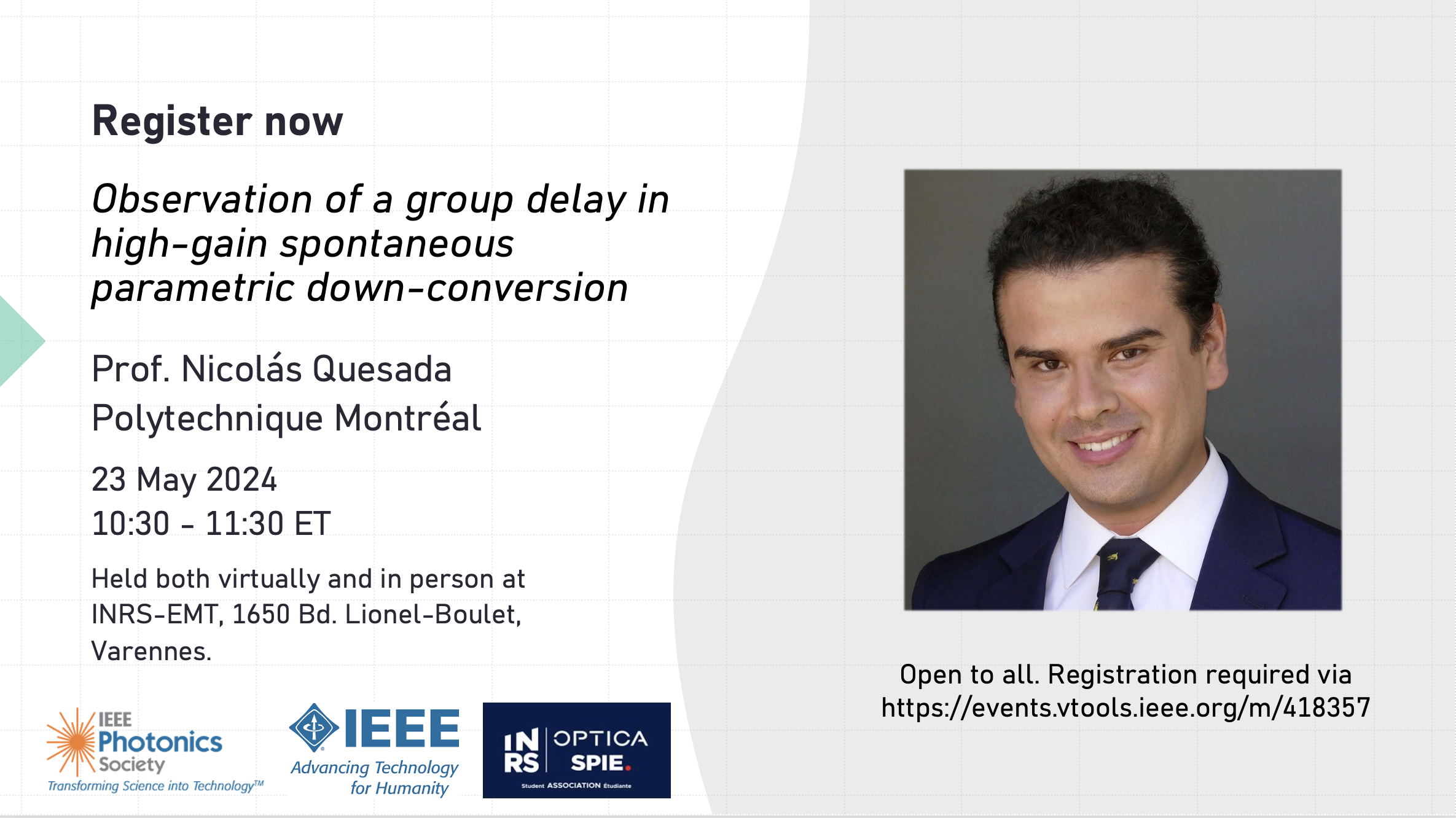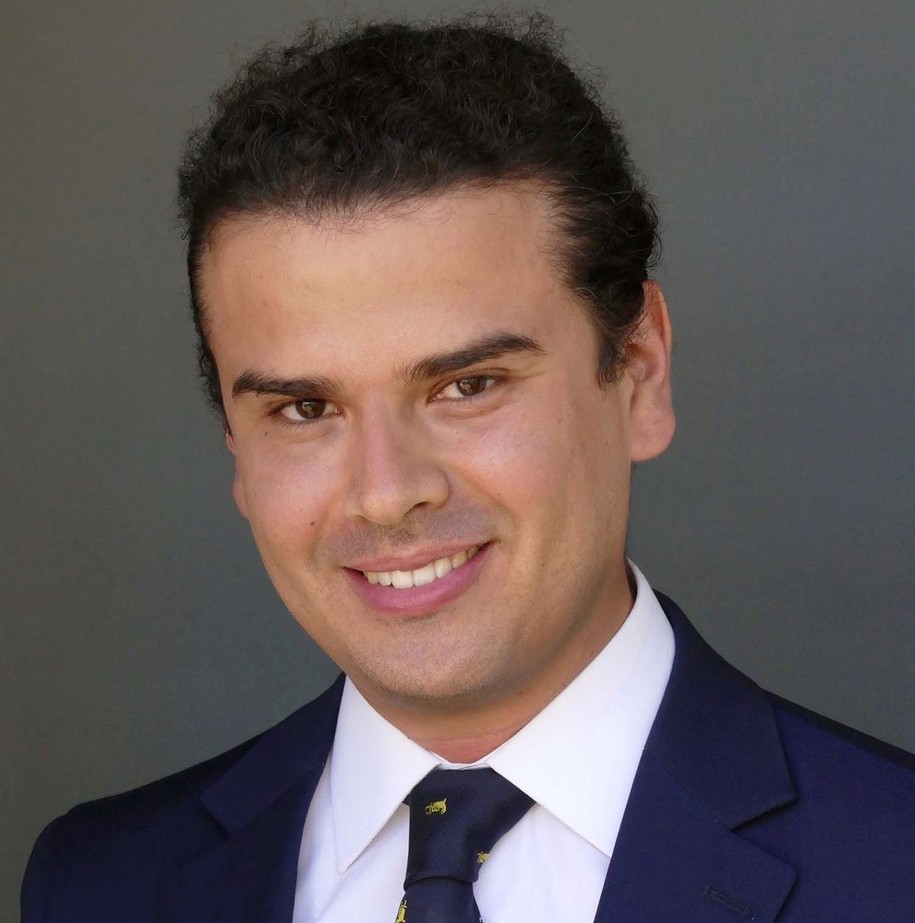Observation of a group delay in high-gain spontaneous parametric down-conversion
La présentation sera en anglais / The presentation will be given in English.
Abstract: Strongly-driven nonlinear optical processes such as spontaneous parametric down-conversion and spontaneous four-wave mixing can produce multiphoton nonclassical beams of light which have applications in quantum information processing and sensing. In contrast to the low-gain regime, new physical effects arise in a high-gain regime due to the interactions between the nonclassical light and the strong pump driving the nonlinear process. Here, we describe and experimentally observe a gain-dependent group delay between the multiphoton pulses generated in a high-gain type-II spontaneous parametric down-conversion source. Since the group delay introduces distinguishability between the generated photons, it will be important to compensate for it when designing quantum interference devices in which strong optical nonlinearities are required.
Joint work with Guillaume Thekkadath, Martin Houde, Duncan England and Ben Sussman.
Date and Time
Location
Hosts
Registration
-
 Add Event to Calendar
Add Event to Calendar
Loading virtual attendance info...
- 1650 Boulevard Lionel-Boulet
- Varennes, Quebec
- Canada J3X 1P7
- Building: INRS-EMT
- Room Number: Salle Tudor Johnston
- Contact Event Hosts
- Co-sponsored by INRS Optica-SPIE Student Chapter
Speakers
Nicolás Quesada of Polytechnique Montréal
Observation of a group delay in high-gain spontaneous parametric down-conversion
Abstract: Strongly-driven nonlinear optical processes such as spontaneous parametric down-conversion and spontaneous four-wave mixing can produce multiphoton nonclassical beams of light which have applications in quantum information processing and sensing. In contrast to the low-gain regime, new physical effects arise in a high-gain regime due to the interactions between the nonclassical light and the strong pump driving the nonlinear process. Here, we describe and experimentally observe a gain-dependent group delay between the multiphoton pulses generated in a high-gain type-II spontaneous parametric down-conversion source. Since the group delay introduces distinguishability between the generated photons, it will be important to compensate for it when designing quantum interference devices in which strong optical nonlinearities are required.
Joint work with Guillaume Thekkadath, Martin Houde, Duncan England and Ben Sussman.
Biography:
Prof. Nicolas Quesada’s expertise lies at the intersection of quantum photonics, optics and information. His group develops the theory and computational tools underpinning the next generation of nonclassical bright light sources and devices needed for building fault-tolerant quantum computers, quantum communication networks and quantum sensors.
Prior to joining Polytechnique Montréal as an MEI research chair in Quantum Photonics, Prof. Quesada worked at Xanadu Quantum Technologies as a lead developer of Strawberry Fields and The Walrus software libraries and led the theoretical efforts to demonstrate photonic quantum advantage.
Before joining industry, he was an NSERC postdoctoral fellow and, as a Ph.D. student, a Vanier scholar and a Stoicheff scholar.
Email:



